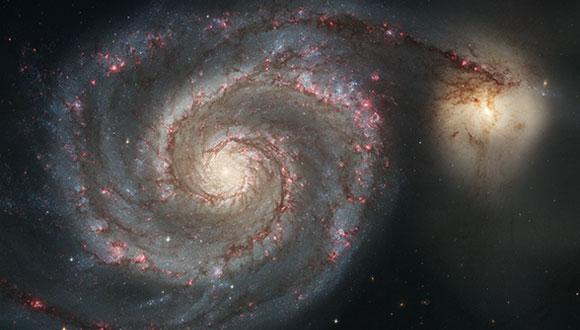Special Astronomy & Astrophysics Seminar: The formation and evolution of massive star forming disks
Prof. Reinhard Genzel, MPE and UC Berkeley; Harvey Prize winner
Abstract:
I will discuss the results of three major programs of studying star formation, cold gas, feedback and dynamics of massive 'normal' star forming galaxies near the peak of the epoch of galaxy formation (z~1-3). Our observations were carried out with the IRAM Plateau de Bure interferometer and with large instruments developed with significant or leading MPE participation (the VLT near-IR integral field spectrometers SINFONI and KMOS, and the far-IR spectrometer/photometer PACS on Herschel). When combined, those studies clearly show that massive star forming galaxies near the star formation-stellar mass 'main-sequence' were gas rich, highly turbulent and clumpy, disky systems with various degrees of rotational support. Star formation in these galaxies was plausibly driven by continuous, rapid accretion of gas and minor mergers from the cosmic web. The evolution of their disks and central bulges was probably strongly influenced by disk fragmentation and instabilities, as well as by powerful galactic outflows driven from the large star forming clumps and AGN. I will discuss the impact of these new observations on our understanding of galaxy evolution in the early Universe.
Seminar Organizer: Prof. Rennan Barkana


